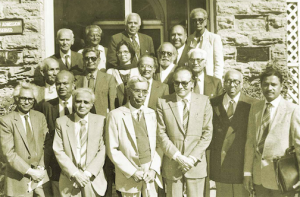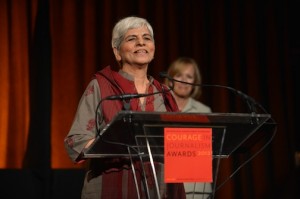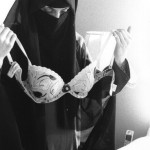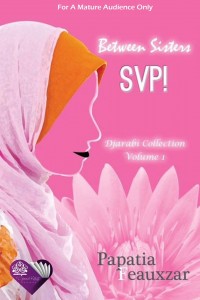Several weeks ago, I wrote a brief profile on Zubeida Mustafa, recipient of this year’s Lifetime Achievement Award from the International Women’s Media Foundation (IWMF). My initial coverage of Mustafa’s achievements was based on snippets I had read from a number of profiles online. Since then, however, I have had the unique privilege of interviewing her on behalf of Muslimah Media Watch. Although much of our conversation took place on email and telephone (she resides in the south of the country, while I live in the north), Mustafa’s “pioneering spirit and determination to pave the way for women in news media” was clearly evident from the very beginning of our interaction.

In terms of navigating Pakistan’s conservative structure where segregation of the sexes is culturally accepted and in parts endorsed by the state, Mustafa was able to use it to her advantage. “You have to become thick-skinned and have confidence in yourself,” she states. “It also gave me the advantage of entering the female quarters in any area where men were not allowed to go.” As a result, Mustafa was able to walk into Afghan refugee camps and speak to women, covering a host of social issues affecting displaced individuals fleeing war-torn Afghanistan. “All the stories on women’s reproductive health became easy for me as I could go up to women and talk to them,” she adds. In this way, not only did Mustafa succeed at reporting on the “big issues,” but by doing so she simultaneously paved the way for Pakistani women to actually consider media and thereby journalism as a viable alternative to traditionally acceptable jobs such as teaching and medicine. “That is why my vision right from the start of my Dawn career was to open the door to as many women as possible. That is where I succeeded and the entry of more and more women into the profession gave me strength.”
In addition to facing some level of resistance in terms of content (a breast cancer article deemed obscene; backlash for chastising pharmaceutical companies for unethical practices) Mustafa also recounts an incident where her article criticizing then dictator President Zia-ul-Haq’s proposal to build an all-women’s university was met with wariness by the editor. “I was opposed to it (the university) because I felt it would segregate women further and the university would be no more than a second rate institution that would be perennially starved of funds,” she says. The editor eventually conceded and published it a week later. “Those were the good old days when I began my journalistic profession,” she says, referring to the late 70s and early 80s in Pakistan. “People were not killed for being unconventional. At the most people ridiculed you or spoke ill of you or started a smear campaign. I didn’t let this worry me because I had no skeletons to hide in my cupboard. If you are a person of integrity such talk doesn’t upset you.” Eventually, President Zia-ul-Haq, on one of his foreign trips, would also go on to refuse entry to Mustafa into his press entourage on grounds it was a “stag party”.

During our brief exchange, Mustafa was exceedingly gracious with her advice on careers in journalism and the all-important and challenging work-life balance that most women (and many men too, I’m sure) attempt to strive for. “Follow your gut sense. Everyone’s circumstances are different so it would be dangerous to give ‘a one size fit all’ advice. But do ensure that justice and fair play, integrity and dignity remain your guiding framework. If you can develop a partnership of equality with your husband it makes parenting easier.
Although Mustafa is retired, she still writes a weekly column for Dawn. She also hopes to use the downtime to return to writing books on subjects she strongly believes in. Presently, Mustafa is working on ‘Making the ‘Impossible’ Possible: The SIUT Story,” a book about Pakistan’s foremost hospital and transplant center, the Sindh Institute of Urology and Transplants.















